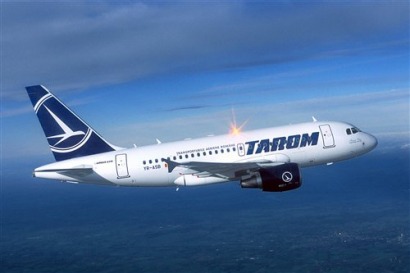
Airbus and TAROM, together with a consortium of key stakeholders have established one of Europe’s first projects aimed at establishing a sustainable bio-kerosene jet-fuel processing and production capability. The Romania-based project aims to provide a biofuel made from the camelina plant, as a renewable, sustainable substitute to fossil-fuel based jet fuel. The project is being overseen by a Romanian non-governmental organisation and Airbus is acting as the catalyst in getting the Romanian value chain for a local bio-jet fuel solution up and running.
Once feasibility studies on agricultural, technological and aeronautical development and sustainability assessment are complete, the project will also assess the existing refining facilities in order to identify Romania’s production capability. Camelina is the chosen feedstock because of its energy potential, its rotational crop qualities, its greenhouse gas reduction potential and its low water requirements. Camelina is also indigenous to Romania, and can be readily farmed and harvested by family farmers. It has a high quality animal feed by-product.
“This is the first European based value chain project bringing together farmers, oil-refiners and an airline to spearhead the commercialisation of sustainable biofuel production,” said Paul Nash, Airbus Head of New Energies. The Romanian Camelina Value Chain will help us further verify the sustainability and economic viability of producing bio-kerosene.”
Sustainable agriculture
Airbus will support the fuel approval processes, and lead in assessing the effect on the aircraft systems and engines. The consortium will work together with the Bucharest University of Agronomical Sciences and Veterinary Medicine’s Centre of Biotechnology (BIOTEHGEN) on the sustainable agricultural phase of the project regarding the camelina plantations, harvesting and oil production.
TAROM is leading the consortium which includes Honeywell’s UOP, CCE (Camelina Company España), and Airbus. Honeywell’s UOP is applying its aviation biofuel refining technology, CCE is contributing its knowledge on camelina agronomy, including technologies on camelina growth, agricultural monitoring networks and plant science. Airbus is providing technical and project management expertise and is sponsoring the sustainability assessment and life cycle analysis studies.
The project will use diverse biomass sources as feedstock, with a special interest in the camelina plant. CCE and BIOTEHGEN are implementing various “camelina placement trials” at different locations in Romania, with the purpose of assessing sustainability of different production models and soil types, including contaminated soil and uncultivated land, in order to identify the best techniques and genetic material.
Many airlines around the world are heavily involved in exploring biofuel alternatives for their aircraft, and progress towards the commercial use of such fuel is being made. In the US for erxampke, bio-kerosene is in the final stage of approval by the American Society for Testing and Materials to be blended up to 50 percent with regular jet fuel when used in commercial flights.
For additional information:

